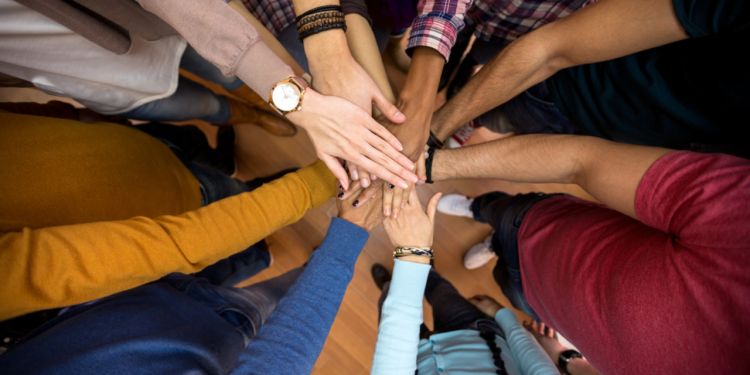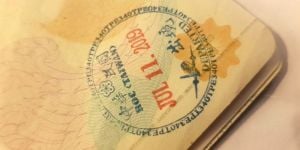
Taiwan is a country that has traditionally been racially homogenous. However, in recent years, Taiwan has seen an increase in its multiethnic, multicultural, and multilingual society, with minority populations accounting for only a small percentage of the overall population. As a result, the concepts of "diversity and inclusion" are relatively new in Taiwan compared to other countries that have long had large immigrant or visible minority groups. The Taiwan government has taken steps to acknowledge and promote diversity and inclusion in various sectors, including education and tourism.
How diverse is Taiwan?
Taiwan is a country of some 23 million people (though the population is steadily trending downwards), with the vast majority, well over 90 percent, belonging to the Han ethnic group. This is to say, Taiwan is still a country that is largely racially homogenous, and as such, concepts such as “diversity and inclusion” are relatively new compared to countries that have long had large immigrant or visible minority groups.
Minority populations in Taiwan tend to be quite small, with approximately two percent identifying as belonging to one of the nation's 16 recognized Indigenous groups. There are also some 700,000 Southeast Asian migrant workers working in the elder care, fishing, and blue-collar manufacturing sectors. However, at present, they are mostly temporary residents with limited and somewhat cumbersome paths to permanent residency in Taiwan or citizenship outside of marriage to a Taiwanese.
In total, there are just over 800,000 foreign residents in Taiwan as of 2023, with Indonesia, Vietnam, and the Philippines representing the bulk of that figure. As for Western nations, the United States has the highest number of residents in Taiwan, just over 11,000.
Teaching foreign languages in Taiwan
In 2019, Taiwan's Ministry of Education announced that teachers and materials would be provided to teach seven Southeast Asian languages in the nation's schools in an effort to recognize that Taiwan is, in fact, becoming a more multiethnic, multicultural, and multilingual society. These languages include Vietnamese, Thai, Tagalog, Burmese, Bahasa Indonesia, Khmer, and Bahasa Malaysia. This made Taiwan the first country to incorporate multiple Southeast Asian languages into its official education curriculum, according to the ministry.
Elementary schools in Taiwan have Southeast Asian language options. In an effort to become more globally competitive and to welcome more foreign residents and workers from around the world, with an eye toward fighting the population decline, the Taiwan government has also launched a Bilingual by 2030 initiative, through which it is hoped that English will become a secondary official language of the country.
Inclusive education in Taiwan
If you're moving to Taiwan with your family, you should know that the country has adopted the American Individuals with Disabilities Education Act (IDEA), which strives to ensure that all students, despite disabilities, have access to the same education. However, the Special Education Act maintains that those studying to be teachers in Taiwan need only take three credits in special education courses.
Class sizes in Taiwan tend to be 30 plus students. Teachers' time and resources are stretched, and with limited training in dealing with special needs students, the education of those with special needs can also be limited.
For hearing impaired students, issues have also been raised as to a lack of sign language teachers with a background in science, a barrier for the hearing-impaired who may wish to pursue a career in science and technology.
Diversity and inclusion in international schools and universities in Taiwan
Taipei American School (TAS) faculty and staff have initiated a Justice, Equity, Diversity, and Inclusion (JEDI) committee with the stated goal of creating a community without bias and a culture of accountability when it comes to matters of discrimination. Similarly, staff at Taipei European School (TES), have also undergone diversity and inclusion training.
Universities in Taiwan that tend to garner larger numbers of international students, such as National Taiwan University (NTU), for example, have stated goals to assist underrepresented and marginalized groups of students and fight against systematic inequalities which may have been commonplace in times past.
Celebrating immigrant cultures in Taiwan
Events are regularly held throughout Taiwan on or before International Migrants Day on December 18th. In Taipei, in 228 Memorial Peace Park, the festivities generally include parades, cultural performances of song and dance done by groups from places such as Indonesia, Thailand, and Vietnam, and various booths featuring cuisine from those countries with an immigrant presence in Taiwan, as well as arts and crafts also representative of those communities.
Such events are in keeping with Taiwan's New Southbound Policy — a set of initiatives that strive to cement cultural, educational, and economic ties between Taiwan and countries such as Cambodia, Indonesia, Thailand, and Vietnam, while lessening economic dependence on neighboring China.
Muslim-friendly travel in Taiwan
In 2022, Taiwan was named the most inclusive destination for a non-Organization of Islamic Cooperation country at the first-ever Halal in Travel Awards in Singapore. That same year, Taiwan also retained its number two overall rating among non-OIC states in the Global Muslim Travel Index.
In an effort to attract more visitors from majority Muslim countries, Taiwan's Tourism Bureau has amplified efforts to make many places Muslim-friendly, adding facilities such as prayer rooms, modifying restrooms, and providing guidance for restaurants in achieving Halal certification.
Inclusion of the queer community in Taiwan
Taiwan was the first country in Asia to introduce marriage equality, allowing for the legal union of same-sex couples. Same-sex marriage between Taiwanese citizens became legal in 2019, and between Taiwanese and foreign citizens, so long as the foreign citizen's home country also recognizes same-sex unions. In terms of political support for same-sex marriage, the bill which eventually passed was put forward by the DPP and championed by President Tsai Ing-Wen. The opposition KMT boycotted the bill and maintained a conservative view of marriage.
To date, thousands of same-sex couples have tied the knot in Taiwan. This is especially important in terms of things like hospital stays, as only legal partners and immediate family are eligible to stay with the patient while they are convalescing. In the past, same-sex partners have been on the outside looking in during these situations.
In general, Taiwan is open and accepting of the queer community. In Taipei, the area around the Red House Theater is filled with bars where LGBTQ people congregate freely and openly. There are drag shows that occur regularly at places such as Cafe Dalida, and most in Taiwan don't bat an eye.
We do our best to provide accurate and up to date information. However, if you have noticed any inaccuracies in this article, please let us know in the comments section below.








